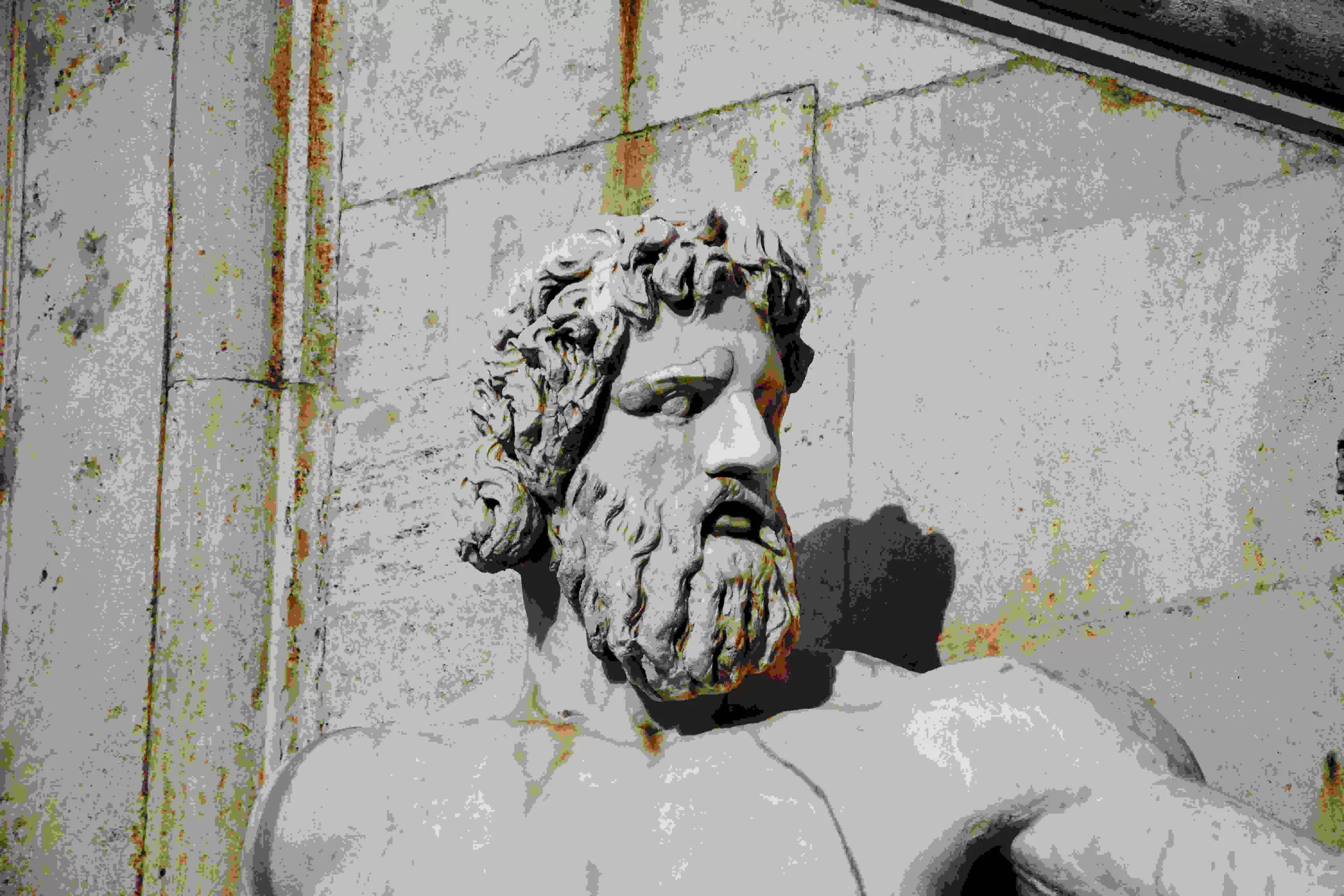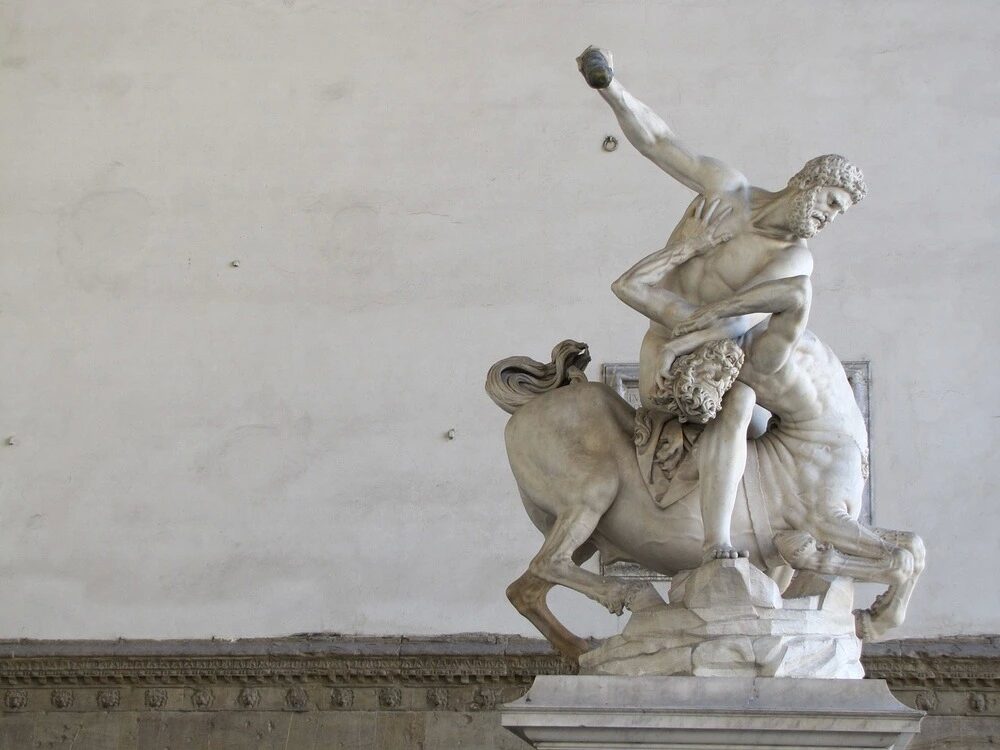Welcome to a captivating journey through the realm of Greek mythology, where gods and mortals intertwine in tales of awe and wonder. In this grand gallery of Greek mythology, Hercules stands tall as a symbol of unparalleled strength and courage, echoing his legendary feats across the ages. From his extraordinary birth to his valiant exploits, Hercules, the ancient hero, commands our attention as an enduring icon.
In this blog post, we delve into the life and legend of one of the most revered figures in ancient history – Hercules. He was the son of Zeus, the king of gods, and a mortal woman named Alcmena, embodying the remarkable fusion of divine might and human frailty that defines the essence of a demigod. Discover fascinating facts about Hercules as we unravel the layers of his remarkable journey.
The Birth and Parentage of Hercules:

The tale of Hercules begins with a celestial union that bridges the realms of gods and mortals. He was born of the king of the gods, Zeus, and a mortal woman named Alcmena. He emerges as a demigod – a being whose essence encapsulates both the heavens and the earth.
The name “Hercules” itself carries a profound significance, echoing the hero’s destiny. In Greek, his name is derived from “Herakles,” combining “Hera,” the goddess who played a pivotal role in his life, and “kleos,” meaning “glory” or “renown.”
The story of Hercules’ birth is not without its challenges. Zeus’ wife, Hera, known for her fierce casts a shadow over Hercules’ beginnings. Hera’s enmity toward Hercules stems from his status as the son of Zeus, and her jealousy fuels a series of events that test the mettle of this nascent demigod.
Twelve Labors of Hercules:

At the heart of Hercules’ myth lies an extraordinary odyssey. It takes the form of twelve monumental labors – a series of trials that test his mettle, strength, and character. These facts about Hercules are embedded within The Twelve Labors, serving as more than mere physical challenges. They embody the essence of Hercules’ heroism. These trials symbolize the multifaceted nature of his journey.
Each labor carries a moral lesson, reminding us that heroism is not confined to physical prowess alone. Through these trials, Hercules evolved from a reckless demigod to a mature figure. He embodied virtues such as courage, humility, and perseverance. The Twelve Labors stand as an eternal testament to the hero’s path – a path that resonates with all who strive to overcome challenges.
Unveiling the Labors:
- The Nemean Lion
- The Lernean Hydra
- The Ceryneian Hind
- The Erymanthian Boar
- The Augean Stables
- The Stymphalian Birds
- The Cretan Bull
- The Mares of Diomedes
- The Belt of Hippolyta
- The Cattle of Geryon
- The Apples of the Hesperides
- The Capture of Cerberus
Hercules’ Divine and Mortal Aspects:
Hercules, a legendary figure from ancient mythology, possessed a unique nature of both godly and human traits. He was what people call a demigod. It means he was born from the union of a mortal parent and a divine parent, in his case, , the king of the gods.
Hercules’ interactions with both humans and gods reflect his complex character. He engaged in conflicts with gods like Hera, who resented him due to his status as a constant reminder of her husband Zeus’ infidelity. Yet, he also formed alliances with gods who admired his strength and valor.
Hercules’ Relationships and Tragedies:

Hercules’ life was marked by intricate relationships and tragic events that shaped his journey. One of the significant relationships in his life was with Megara, his wife. Their love story was marred by tragedy when Hera, Zeus’ wife and Hercules’ stepmother, played a cruel hand. Enraged by Hercules’ existence, which reminded her of Zeus’ infidelity, Hera manipulated his mind, driving him to commit unspeakable acts in a fit of madness.
Under the influence of this dark cloud, Hercules caused the deaths of his wife and children. This heart-wrenching tragedy became a defining moment in his life, as he was forced to grapple with the consequences of his actions.
Despite the pain and remorse he felt, Hercules was not defeated by his past. Instead, he sought redemption for his grave mistakes. Driven by a deep desire to atone for the lives he inadvertently took, he embarked on a journey of penance. Hercules vowed to perform various labors as a form of self-punishment and to prove his dedication to noble causes.
Through these acts of heroism, Hercules displayed a profound commitment to making amends for his past. He channelled his immense strength and abilities towards tasks that benefited both humans and gods.
Theme and Facts about Hercules’ Story:
Hercules’ myth is a treasure trove of lessons and themes that resonate across time and cultures. One of the central themes is the eternal struggle between destiny and free will. Hercules, born with a predetermined fate as a demigod, defied this destiny through his choices and actions.
The pursuit of greatness is another significant theme woven into Hercules’ narrative.
The concept of heroism is explored in Hercules’ struggles and triumphs. He wasn’t a flawless figure but a complex character who faced internal and external conflicts. His willingness to confront his mistakes and seek redemption adds depth to his heroism.
FAQs
Who are Hercules’ parents in Greek mythology?
Hercules, also known as Heracles in Greek mythology, was born to Zeus, the king of the gods, and Alcmena, a mortal woman.
Was Hercules in “Thor: Love and Thunder”?
No, Hercules is not a character in the “Thor: Love and Thunder” movie. They belong to different mythological backgrounds. Hercules is a figure from Greek mythology, while Thor is from Norse mythology.
Who was Hercules’ wife in Greek mythology?
In Greek mythology, Hercules had two prominent wives. His first wife was Megara, with whom he had children. Tragically, due to Hera’s influence, he inadvertently caused the deaths of Megara and their children. Later, after his twelve labors, he married Deianira.
How strong was Hercules in Greek mythology?
Hercules was renowned for his immense strength, a gift from his divine parentage. His strength was so great that he could perform incredible feats, like slaying fearsome monsters and completing the Twelve Labors.
Is Hercules a Greek god of strength?
Hercules is not specifically considered the god of strength in Greek mythology. He is a symbol of heroic strength, courage, and endurance, embodying the ideals of heroism.

